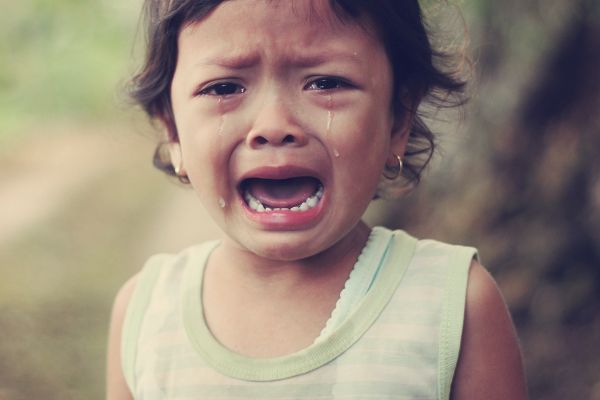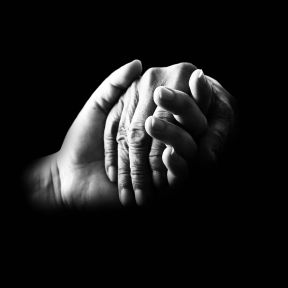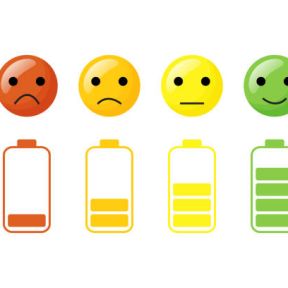
Compassion Fatigue
People whose professions lead to prolonged exposure to other people's trauma can be vulnerable to compassion fatigue, also known as secondary or vicarious trauma; they can experience acute symptoms that put their physical and mental health at risk, making them wary of giving and caring.
Contents

Empathy is a valuable trait for the military, first responders, humanitarian aid workers, health care professionals, therapists, advocates for victims of domestic abuse, moderators of offensive online content, and journalists on the front lines of war and disaster. But the more such individuals open themselves up to others' pain, the more likely they will come to share those victims' feelings of heartbreak and devastation. This sapped ability to cope with secondary trauma can lead to total exhaustion of one’s mental and physical state.
Those who regularly experience vicarious trauma often neglect their own self-care and inner life as they struggle with images and stories that can’t be forgotten. Symptoms of compassion fatigue can include exhaustion, disrupted sleep, anxiety, headaches, stomach upset, irritability, numbness, a decreased sense of purpose, emotional disconnection, self-contempt, and difficulties with personal relationships.
Compassion fatigue can affect the most dedicated workers—people who continue to help by working extra shifts or foregoing days off, neglecting their own self-care. This can result from exposure to a single case of trauma, or from years of accumulated “emotional residue."
To be more effective, studies have shown, some workers in helping professions may benefit from what’s known as “psychic numbing”—the ability to dial down one’s empathetic instincts while on the job, freeing up cognitive resources to find solutions to the problems in front of them rather than becoming paralyzed by the scope of need they see.
The understanding that exposure to the trauma of others could put people at risk has long been understood—historian Samuel Moyn has said, “Compassion fatigue is as old as compassion,” but the term was coined by historian Carla Joinson in 1992, and further defined and researched by psychologist Charles Figley, who describes it as “a state of exhaustion and dysfunction, biologically, physiologically and emotionally, as a result of prolonged exposure to compassion stress.”

A secondary definition of compassion fatigue refers to the experience of any empathetic individual who is acutely conscious of societal needs but feels helpless to solve them. People who actively engage in charity, or volunteering, may come to feel that they cannot commit any more energy, time, or money to the plight of others because they feel overwhelmed or paralyzed by pleas for support and that the world’s challenges are never-ending.
Evolutionary psychologists studying the development of human empathy suggest that we evolved to put our clan or family first and may struggle to extend our empathy to other groups. Some researchers even argue that empathy can fuel antisocial behavior such as aggression.
Research findings show that people tend to be more responsive to the needs of individuals rather than that of groups, or of the world as a whole. For this reason, charitable organizations have learned to focus their campaigns on how donors can help individual victims, not suffering groups.
Viewing violent news events on television or social media can also cause some people with high levels of empathy to experience symptoms similar to those of secondary trauma.
Soon after a catastrophe, an outpouring of assistance and support is extended to people affected by disaster. However, empathy starts to wear off quickly. This happens because we become fatigued when we are exposed continually to the suffering of others.

Hospitals, nursing and police unions, medical associations, correctional facilities, and other professional groups have become more aware of the effects of secondary trauma and now urge those in the helping professions to offset such fatigue.
We think someone else's problem is theirs, not ours. Yet we are all linked more than we realize. The more we bother to be a good influence in the world, the better the world will be—not just for others, but for us.
You can counteract such fatigue through regular exercise and healthy eating, a commitment to adequate rest and regular time off, and time in therapy. It also helps to set emotional boundaries without barricading yourself from the world.
People experiencing compassion fatigue may secretly self-medicate with alcohol, drugs, gambling, or food. Left unaddressed, compassion fatigue can develop into clinical depression or post-traumatic stress disorder.
Other techniques like mindfulness, meditation or yoga, and time with loved ones or in nature, or devoted to interests or hobbies outside of work have also been found to lessen the symptoms of compassion fatigue.
A 2015 study in the Journal of Continuing Education in Nursing argues for resilience training, a program designed to educate care workers about this type of fatigue and its risk factors. Such training teaches how to employ relaxation techniques and build social support networks to cope with symptoms that arise.














